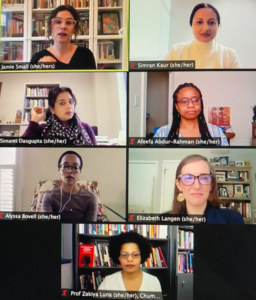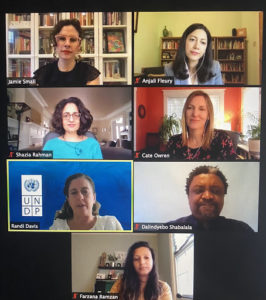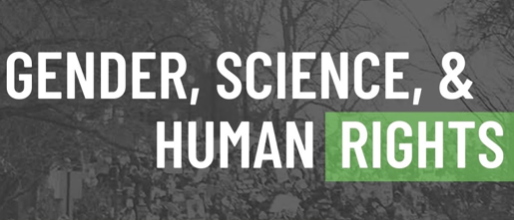UD celebrates gender, science and human rights for Women’s History Month
A virtual roundtable was held to celebrate gender, science and human rights for Women’s History Month.
Carolyn Kroupa
Contributing Writer
Every Thursday during the month of March, the Human Rights Center hosted a virtual roundtable with experts to discuss gender, science and human rights.
The Gender, Science and Human Rights roundtable series celebrated Women’s History Month and aimed to recognize the struggles and successes of women and girls globally. Each week focused on a different topic related to gender equality including violence, health, sustainability and peace. Panelists took a scientific approach to addressing inequalities and human rights.
Week two focused on health and health inequality. This conversation was especially poignant as the COVID-19 pandemic continues to disrupt lives everywhere.
Panelists discussed how COVID-19 and other crises affect the most vulnerable groups of people the worst, which is most often women and girls.

Panelists also discussed their career origin stories and galvanizing moments that inspired them to get into the medical and health field. They noted cultural and religious impacts that reflect gender biases and norms which had profound effects on the trajectory of their careers.
A problem that the panelists noted about the healthcare system is a pattern of doctors and health professionals not listening or paying attention to women’s symptoms. This is especially prevalent for women of color, and can lead to long-term health issues for these women, including death.
Other health concerns include food insecurity and a lack of basic needs being met, such as clean drinking water, shelter and accessible health care. These concerns span internationally, but they are also prevalent on a national and local level.
The panelists concluded that in order to improve community health, there needs to be long-term solutions and policies in place rather than temporary solutions like food drives. Job prosperity also needs to be implemented to help communities access quality health care.
Economic and environmental sustainability also shape the communities and the lives of women. Climate disasters disproportionately affect women and girls because their education is disrupted, and there is an increase in gender-based violence, food insecurity, early/forced marriage and premature childbirth.

Sustainability focuses on environmental justice and women’s economic empowerment.
Panelists emphasized how important it is to empower and acknowledge the agency of individuals when doing sustainability work under the lens of neocolonialism. Neocolonialism is the use of economic, political and cultural control to influence other countries.
Listening to women and having an open mind without preconceived notions is essential.
A key takeaway from this series is that careful interpretation of data is important because people can use science to justify inequality. Panelists recommend that gender needs to be at the forefront of conversations about health, sustainability and other social issues.
This interdisciplinary series featured many notable speakers. The full list of panelists can be found here.
For more campus news like Flyer News on Facebook and follow us on Twitter (@FlyerNews & @FlyerNewsSports) and Instagram (@flyernews)

